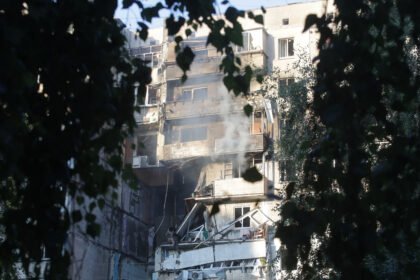Paris/Berlin/London – Europe’s major leaders, particularly those of France, Germany and Britain, are trying to create a so-called “coalition of the willing.”
This will be done by organizing a video conference to discuss ways forward in settling the war. This comes after US President Donald Trump ruled out an immediate ceasefire on Saturday.
Trump had indicated that he had pushed directly towards a “peace agreement” the day after the summit he held with his Russian counterpart in Alaska.
The Alaska summit was supposed to be decisive for Ukraine and Europe. It provided Russian President Vladimir Putin with a return to the international arena. This happened after he was removed from it following the launch of the war in Ukraine in February (February) 2022. However, it did not lead to a cessation of military actions. Nor did it lead to the imposition of new sanctions targeting his country.
Trump has even come to support a proposal from Russia to strengthen its presence in eastern Ukraine, according to an official familiar with phone conversations between Trump and European leaders.
According to the same source, the Russian president is demanding that “Ukraine leave Donbas.” Thus, Ukraine would completely cede this region, which includes the Donetsk and Luhansk regions in eastern Ukraine.
Putin also proposes freezing the fighting on the front lines of the Kherson and Zaporizhia regions (south).
security assurances
French President Emmanuel Macron, British Prime Minister Keir Starmer, German Chancellor Friedrich Merz, and ahead of Zelensky’s trip to Washington, will hold a video conference on Sunday.
This conference will be joined by the “Alliance of the Willing” supporting Kiev. It includes most major European countries, the European Union, NATO and other countries such as Canada.
According to diplomats, participants are expected to discuss the security guarantees. These will be granted to Kiev as part of a possible peace agreement.
Trump proposed security guarantees inspired by those provided by NATO, but without joining NATO. Moscow considers NATO an existential threat extending to its borders.
Italian Prime Minister Giorgia Meloni explained that to begin this, “a collective security clause must be defined. It allows Ukraine to obtain the support of all its partners, including the United States, to be prepared to act if it is attacked again”.

















